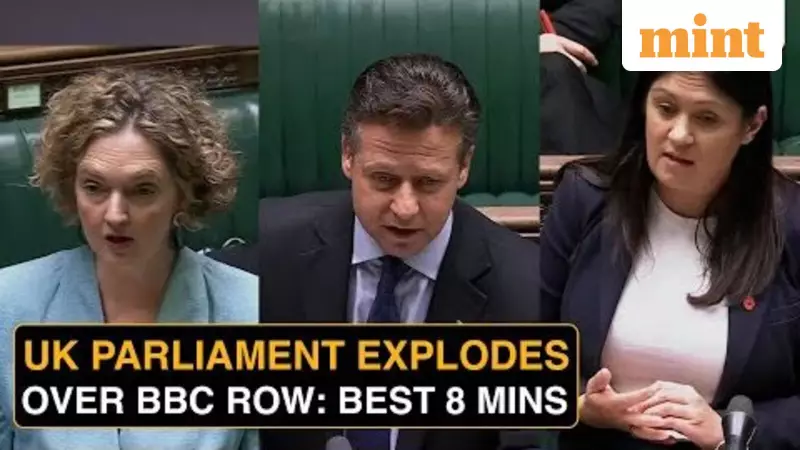
BBC Rocked by Leadership Exodus Following Bias Allegations
The British Broadcasting Corporation (BBC) is facing one of its most significant crises in recent history as two top executives have resigned amidst allegations of systemic editorial bias. The scandal has sent shockwaves through the UK media landscape and drawn serious concern from government officials.
In a dramatic development on November 12, 2025, BBC Director-General Tim Davie and News CEO Deborah Turness both stepped down from their positions. Their resignations come amid mounting pressure over a leaked internal memo that exposed serious editorial misconduct within the broadcaster's flagship investigative program, Panorama.
The Core Allegations: Doctored Content and Editorial Bias
The controversy centers around multiple instances of alleged editorial manipulation. According to the leaked documents, Panorama program editors deliberately altered former US President Donald Trump's January 6 remarks that were broadcast on November 10, 2025. The editing allegedly distorted the context and meaning of his statements.
Beyond the Trump speech controversy, the memo also accused the BBC of demonstrating systematic bias in its coverage of Hamas and Gaza conflict reporting. Additionally, the document pointed to inappropriate editorial influence regarding transgender-related coverage, suggesting the broadcaster had compromised its impartiality standards across multiple sensitive topics.
The timing of these revelations couldn't be worse for the BBC, which has long prided itself on being one of the world's most trusted news sources. The fact that the allegations involve the prestigious Panorama program, known for its hard-hitting investigations, has added to the severity of the crisis.
Political Fallout and Demands for Accountability
The scandal has quickly reached the highest levels of British government, with UK Culture Minister Lisa Nandy describing the allegations as "incredibly serious". Her statement emphasized the need for public broadcasters to maintain the highest standards of journalism and impartiality.
Members of Parliament from across the political spectrum have expressed grave concerns about the implications of the scandal. Many are calling for a thorough independent investigation into the BBC's editorial processes and compliance with broadcasting standards. The crisis has sparked debates about media accountability and the challenges facing public service broadcasters in an increasingly polarized media environment.
The resignations of both Davie and Turness represent one of the most significant leadership shakeups in the BBC's recent history. Their departure under such circumstances indicates the severity of the institutional crisis facing the broadcaster. The BBC now faces the dual challenge of restoring public trust while navigating the complex process of finding new leadership during this turbulent period.
As the story continues to develop, media analysts are watching closely to see how the BBC will address the systemic issues raised by the scandal and what measures will be implemented to prevent similar controversies in the future.





